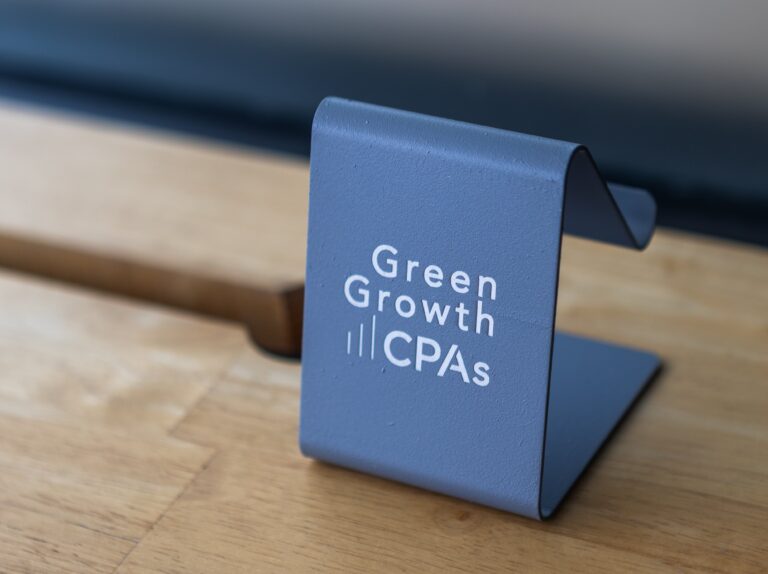Running a successful business in the cannabis industry is a complex endeavor, requiring savvy financial management and a deep understanding of the unique challenges inherent to the sector. One of the most critical financial factors to manage meticulously is cash flow. In this guide, we’ll provide comprehensive insights into managing cash flow in a cannabis business, offering practical strategies to help maintain financial stability and drive growth.
Understanding the Importance of Cash Flow in Cannabis Operations
In any business, cash is the lifeblood, and for cannabis businesses, it’s no different. Cash flow, defined as the net amount of cash and cash equivalents moving into and out of a company, is a crucial metric in the cannabis industry. Poor cash flow management can lead to business failure, with studies indicating that it contributes to a staggering 82% of business failures in the US.
And as we all know, cannabis is not a cheap industry to participate in, and cannabis operators of all sizes can better manage cashflow.
While all small business owners struggle with cash flow, the production life cycle of cannabis and taxes and banking regulations can make it difficult for operators to have enough cash on hand to cover operating expenses.
The 280E regulation imposes unique tax burdens on cannabis businesses, further complicating cash flow management.
Key Strategies for Effective Cash Flow Management
To help cannabis operators navigate these cash flow challenges, we’ve compiled several strategies that can help manage cash flow and enable business growth.
Practice Regular Cash Reconciliation
At the end of each day, reconcile your cash on hand with your POS system to ensure no theft or diversion. Make sure your team is following your standard operating procedure for cash handling, which should answer the following questions:
- Where will the cash be kept?
- How will it be counted?
- Who will count it?
- Will the business get a bank account, and where?
- How will the cash be transported from the facility to the bank?
- Where will the safe be located?
- What type of safe will be used?
With many of the transactions in the cannabis industry being handled in cash, implementing strong cash-handling policies is critical. Some effective practices include using a drop safe for cash storage, separating cash for taxes from operating capital cash, and implementing anti-fraud measures. Furthermore, operators should consider obtaining a cannabis-approved bank account.
Are you accepting digital payments? Separate income from taxes immediately.
Some merchant processors will allow you to automatically break down your deposits so that you can set aside income money from tax money.
For instance, if you record $100 through your POS, you can set up your system to automatically move $10 to a sales tax account, $10 to your city tax account, and $20 to an account for state and federal taxes and then whatever is left (less the processing fees) over to your main account.
If you cannot set up these automatic deposits into separate accounts, then make sure to reconcile your merchant accounts weekly to account for how much money needs to be separated.
Prioritize your cash flow payments
Here’s what our experts suggest paying first (as applicable) on a monthly basis.
Pay your Taxes
You are legally required to pay taxes, so this should always be your first priority. Cannabis operators are subject to a variety of taxes at the federal, state, and local levels. Therefore, it’s essential to understand these tax obligations and how they impact cash flow.
After paying sales taxes, reserve and pay federal and state income taxes from your general operating account. Next, set aside and pay any federal state employment-related taxes for employees. And lastly, NEVER, for any reason, use tax money to help float your operating capital!
Rent and Utilities
The next priority should be to pay your lease, utilities, and any other expenses related to your business’s premises (like insurance). If you can’t keep the doors open and the lights on, you’ll unlikely get out of your cash flow crunch.
Other Business Expenses
Vendor accounts payable, salaries owed to employees, and other selling, general, and administrative expenses must be covered next.
Rainy Day Fund
An important aspect of cash flow management is risk mitigation. When you have positive cash flow, it’s a good idea to pay a selected percentage into a rainy day fund that will grow incrementally over time. An emergency fund covering operating expenses for up to 60 days can provide a safety net during unexpectedly high tax bills or unforeseen expenses.
Reserves and Shareholder Payments
As funds are available and not otherwise needed to meet operating expenses for the company, you may pay your investors or shareholders in proportion to their percentage of ownership.
Closely Manage Inventory and Payment Terms
The regulations of the 280e make it difficult for many cannabis operators to open a bank account, so receiving payment becomes complicated.
By one measure, one out of four cannabis-related orders carries a 30+ day payback period. Waiting more than one month for cash to arrive is unsustainable for any new business, let alone a high-value market like cannabis.
Cannabis operators need to be aware of these potential risks, and keep a close eye on their accounts receivable balance, delivery rejection rate, and local packaging regulations.
Practice Good Bookkeeping
Too often, cash flow issues can be attributed to poor bookkeeping practices.
It’s easy for cannabis operators to fall behind on keeping their books up-to-date, invoicing, and managing the multiple checks and balances necessary to comply with regulations.
And we get it; those things are not fun and seem like busy work. However, using strong accounting best practices is critical to keep track if payroll, vendor invoices, sales tax, and other accounts receivable reports.
These transactions will give you a clear picture of your cash flow and prevent surprises.
Outsource CFO Functions
Hiring a chief financial officer (CFO) or outsourcing CFO functions can help manage cash flow effectively. A CFO can provide strategic financial input, help forecast trends, and optimize cash flow management. They can also assist in developing a cash flow forecasting tool to project current cash on hand and help make informed decisions about capital purchases.
Working with a certified public accountant (CPA) with cannabis-specific experience can be invaluable in navigating the complex tax landscape. By calculating expected tax bills for each month, quarter, and year, operators can set realistic savings goals.
Conclusion
Managing cash flow in the cannabis industry is a complex endeavor, but with the right strategies and resources, it’s quite achievable. From understanding tax obligations to implementing effective cash handling procedures and leveraging expert advice, cannabis operators can successfully navigate cash flow challenges and achieve business success.





